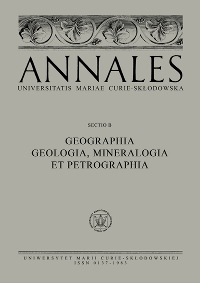Konflikty przestrzenne w procesach suburbanizacyjnych
w świetle planowania przestrzennego.
Studium przypadku podlubelskiej gminy Strzyżewice
Spatial Conflicts in the Suburbanization Processes from the Perspective of Spatial Planning: Case Study of the Strzyżewice Commune
Author(s): Dominika MazurSubject(s): Social Sciences, Sociology, Rural and urban sociology
Published by: Wydawnictwo Naukowe Uniwersytetu Marii Curie-Sklodowskiej
Keywords: spatial conflict; suburbanization; spatial planning; Strzyżewice commune
Summary/Abstract: The process of urban expansion is increasingly encompassing suburban areas, in particular undeveloped agricultural areas. As a result of this process, functional changes and increasingly complex spatial structures can be seen in rural areas. Multiple interactions inevitably arise between the elements of these structures, including functional and spatial conflicts. Spatial planning is a tool for advance identification, and in many cases for elimination of such conflicts. The aim of the article is to assess the impact of the suburbanization process on the spatial structure of a suburban commune as well as the identification of individual types of conflicts. This study concerns spatial planning in the rural Strzyżewice commune. The subject of the analyses are conflicts of interest revealed during the preparation of planning documents. Based on the analysis of documentation prepared during the development of local planning documents it was confirmed that the suburbanization processes of the city of Lublin created specific – real or potential – spatial conflicts in the areas subjected to these processes.
- Issue Year: 77/2022
- Issue No: 1
- Page Range: 111-130
- Page Count: 20
- Language: Polish

